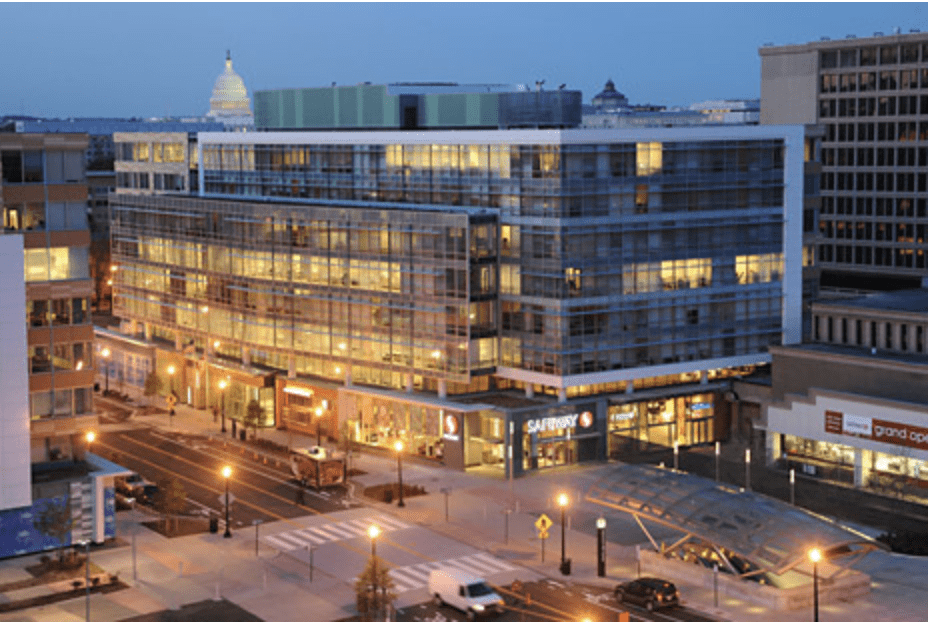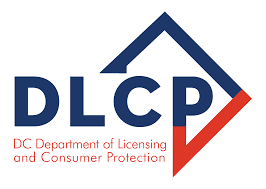Exclusive Interview: Shirley Kwan-Hui, Head of New D.C. Agency Protecting Consumers and Licensing Businesses
By • January 9, 2023 0 2789

There’s a new consumer-protection czar in town. And her skills and life experience are poised to help safeguard D.C. residents and visitors while ensuring safe and successful business practices in the nation’s capital.
Shirley Kwan-Hui, interim director of one of the District’s newest agencies, the Department of Licensing and Consumer Protection (DLCP) – created in October 2022 along with the Department of Buildings (DOB) following the splitting of D.C.’s largest agency, the Department of Consumer and Regulatory Affairs (DCRA) – knows how it feels to be an unprotected consumer, but understands the data-driven tools government can use to safeguard citizens’ lives while streamlining licensing requirements for businesses.
The Georgetowner spoke with Interim Director Kwan-Hui about her leadership vision, objectives, and the significance of the DLCP to people’s daily lives.

In the largest D.C. government restructuring in a decade, the D.C. Council voted unanimously to split the DCRA in two. Photo, DCRA at 1100 4th St. SW. Courtesy DCSBDC.
Kwan-Hui’s background story helps explain her empathetic approach. “I immigrated to the U.S. from Hong Kong at 11-years-old and lived in a one-bedroom apartment in New York [City] with eight people including my grandparents,” she said in a DCRA interview. “So, I was already becoming the main translator for my family as soon as I stepped foot in the U.S.” she told The Georgetowner. Just “navigating all the government services” opened her eyes to the challenges of language and cultural barriers. “I know that when both of my parents lost their jobs, we actually had to find pennies in the apartment to buy food because we didn’t know that we could apply for food stamps.”
“You know, there’s a lot of fear involved,” Kwan-Hui said. “…Even with the food stamps, we didn’t know if that was going to affect our citizenship application or our status. What would people think about us?”
Later, during the pandemic, her father lost his job and tried to start a new entrepreneurial business in New York, but it “didn’t pan out.” So, Kwan-Hui emphasized, “I understand from the standpoint of getting licensed, and getting the government services, the access, the education – outreach is so important.” Today, the DLCP regulates the licenses of over 58,000 businesses in the District and Kwan-Hui is trying to improve how it’s done.
After earning a finance and business management degree from Binghamton University in New York, Kwan-Hui rose quickly in the professional world, serving as a senior accountant at BNY Mellon Bank and separately as an administrator at Deutsche Bank.
But a public service career was more to her liking. In college, despite her “shyness,” Kwan-Hui took on the leadership of the Asian Student Union, inspired by seeing Asian-American workers’ struggles for decent working conditions.
So, around 2008, Kwan-Hui came to D.C. and found a story-book opportunity. “I didn’t know a lot of people [in D.C.], because I just relocated here… but I heard about this wonderful job fair at the Convention Center, from Mayor Fenty, and I walked in. And when I left, I had a conditional offer to work with the Chief Technology Officer for the District,” she recalled.
Soon, Kwan-Hui had her finger on the pulse of data-driven solutions to governance in the District. She became a Program Analyst for Agency Performance managing data analysis to improve the success of city agencies. Then a TechStat Program Analyst where she led strategic planning and policy development. Then Chief of Staff for the Department of For-hire Vehicles (DFHV) where she led the transition to digital cab meters “before any other capital city in the U.S.” Then she rose to deputy director of the massive DCRA.
So, when Mayor Bowser needed an interim director for the new DLCP late last year, Kwan-Hui was the obvious choice.

New logo for a new agency: DLCP.
Business Licensing
One of Kwan-Hui’s first orders-of-business at the new DLCP has been to partner with the DC Office of the Chief Technology Officer (OCTO) to streamline the business licensing process with a new “DC One-Stop Business Portal.” The online checklist system, now in its beta testing phase, will be the product of collaborative work across “a dozen other agencies to start to connect their systems to this new portal to speed up processes and create a better experience.”
“We aspire to make D.C #1 in the nation to launch a business where entrepreneurs can start and maintain a business seamlessly,” DLCP recently announced.
But, just having a one-stop portal is not enough. Kwan-Hui wants to ensure that every D.C. resident and business owner can navigate simply through the licensing process. “I want to make sure we do a lot of outreach to all District residents and businesses, especially those whose first language might not primarily be English and those who might use sign language,” she said, stressing that under her leadership the agency will be looking for “ways to help them navigate the licensing requirements… because the process can really be a make-or-break [experience] for a family making a living.”

Outreach is a key DLCP goal for Kwan-Hui. Twitter photo (cropped).
It’s also important for larger businesses to be able to navigate compliance, Kwan-Hui emphasized. “Big corporations provide jobs and support for the community as well.”
“But I don’t think our role should just be limited to helping our customers with licensing and compliance. We want to make sure we connect people with our sister agencies’ efforts, maybe through grants, maybe some other opportunities, like free legal services… so they cannot only start their businesses, but sustain their businesses… For me, our role at DLCP is how we help businesses and consumers thrive.”
Consumer Protection
If consumers aren’t protected, however, people and businesses will suffer. So, Kwan-Hui is passionate about protecting D.C.’s consumers. “It’s so important to us because if you go to a grocery store and, for example, the weight scale is not being honest – i.e., you’re getting cheated – or, if you go to a gas station and aren’t getting a full gallon of gas [for what you pay] that’s not good for us. We want the people who live in the District to feel comfortable that they have those safeguards – that when they come and visit us, they’re being protected.”
To help protect D.C.’s consumers, the DLCP is charged with enforcing the 1976 Consumer Protection Procedures Act (CPPA). The agency therefore sends out teams of investigators to the city’s businesses to respond to citizen complaints and keep businesses apprised of new regulations. Protecting young people from e-cigarettes and flavored tobacco, shutting down street sales of fraudulent products, and monitoring city Covid regulations are just a few examples. “We also do regulatory compliance checks for all the businesses, making sure that no illegal businesses are happening,” Kwan-Hui said. “By December, we visited over 400 storefronts in D.C.”
Consumer complaints in the District require DLCP Investigation within 30 days. For their last two quarters, DLCP reported over 99 percent of cases had been addressed. For a department dealing with occasionally angry consumers, DLCP’s self-reported customer service ratings for 2022 seem pretty strong with 81 percent of respondents reporting an “excellent” or “satisfactory” experience with the agency’s work.
So, why shouldn’t people see the DLCP as just another bureaucratic acronym in a city of big government? “I would say the DLCP is important because when you dine out with your family, you want to make sure that the business is licensed and they’ve had their inspection done by DC Health, so that it doesn’t impact your health, right?” Kwan-Hui asks. “And it’s important because if we don’t make the licensing easier and businesses are shutting down, people are not going to have their dry-cleaning service, or the wonderful M Street with all the restaurants and all the retail stores. So, it would impact everybody’s livelihood…. And during the pandemic, a lot of people wanted to pivot to become entrepreneurs or change their career paths and we wanted to support that.”
Impacts for Georgetown
So, how might Kwan-Hui’s efforts affect Georgetown? One solution to the problem of Georgetown’s vacant storefronts, Kwan-Hui said, is to attract businesses of all sizes and more residents and dispel the myth that “it’s hard to do business in D.C.” Citing “over 600 rental housing licenses” in Georgetown, Kwan-Hui said “That’s huge… That means there are a lot of people very happy to be living in Georgetown and there’s a big attraction there because Georgetown is so special, especially with Georgetown University.” The university recently awarded DLCP, recognizing the agency as “great partners with them in making sure of safe living conditions for their students who live in Georgetown.”
“So, we are here to help,” Kwan-Hui reassures, adding that one of her daughter’s favorite places to shop is Georgetown.
To visit DCLP’s website and/or to file a consumer complaint, go to Dlcp.dc.gov.

